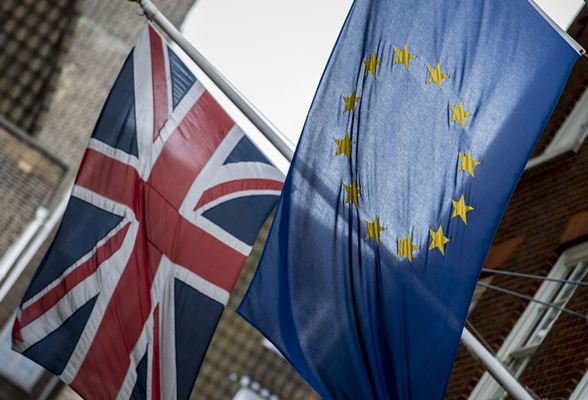Brexit: When politics of fear masks failed economic system

Uncertainty has become the new normal and the overarching theme of the twenty-first century. Since the June 23, 2016, British referendum on the European vote, markets in both Great Britain and the United States have plunged over the uncertainty. The United States lost more than $100 billion in only one day. Britain’s vote to leave the European Union has presented a big test for the rest of the world, as the implications of this vote will likely go beyond merely financial or legal consequences, involving political and diplomatic issues such as the emergence of new economic relationships, a changing balance of power, and the resurgence of new forms of nationalism and localized rather than international ideologies.
Apart from these consequences, this referendum could provoke nationalist forces elsewhere in Europe to intensify their own struggle against European integration—not to mention its security ramifications for NATO and its post-war rationale. There are two views regarding this issue. It can strengthen NATO since it becomes the place for real European unity, as the UK will stay in. The alternative is that the EU will start pursuing a more independent foreign and security policy that could potentially challenge US hegemony in Europe.
The British departure could also set a troubling precedent not only for the breakup of the United Kingdom but also for further divisions within the EU—divisions that can be exploited by both Russia and China. It is projected that the United Kingdom may not stay united, as Scotland and Northern Ireland may break away from the UK so that they can stay in the EU. More recently, however, Spain has said they would block any attempt by Northern Ireland or Scotland to join the EU independent of the UK. For its part, the European Union faces many other challenges—including the refugee crisis and the recent wave of migrations from the Middle East and North Africa, Greece’s uncertain economy, and Russia’s influence over eastern Ukraine—that make Britain’s decision to leave the EU minor in comparison.
There are also legitimate questions to be asked about how globalization has generally affected working class and lower-middle class voters in Great Britain when they voted to leave. This can be shown in the way in which cosmopolitan London, run by a Muslim mayor, overwhelming voted in favor of remaining and yet the hinterlands, by contrast, voted to leave the EU. Under such circumstances, xenophobia seemed to have interacted with a stagnant middle class. This development may also reinforce the view that Great Britain really has yet to accept the diversity in its midst.
From a different perspective, some experts, including Jeffrey Sachs, have pointed to several other factors, including an implicit class warfare in Europe, a surge in anti-immigrant politics, and America’s addiction to wars and regime change, as deep causes of resentment toward globalizing forces in the world. There can be no doubt that many people in Great Britain continue to feel alienated from economic progress in Europe and feel not fully in control of their lives in the EU. This may explain their move toward more nationalist and local solutions to governance and politics.
Meanwhile, economists, such as Barry Eichengreen, UC-Berkeley Professor of Economics and Political Science, have shown that Britain has experienced the largest productivity shortfall relative to the other G-7 countries since the early 1990s. This has led to a dramatic decline in wages and living standards, which is at the heart of why so many in working class areas voted to leave the EU. The anger over immigrants, Eichengreen argues, has often been cited as a key factor in explaining the “Leave” vote. But the real cause of resentment lies in economic stagnation and rampant inequality in Great Britain. The rabid scapegoating of immigrants for the failure of the economic system in Great Britain, a widely held perception among many in Great Britain and an easy sell in that country’s provincial areas, is fundamentally wrongheaded. Unless the UK’s leaders come to understand this reality, more flawed and inept policies will ensue. The promotion of sustainable development is the key to bringing along the disaffected working class rather than further globalizing prospects. If European politicians fail to properly understand these dynamics, we may see the gradual erosion of the European politico-economic order in coming years.
******
Mahmood Monshipouri, Ph.D., teaches Middle Eastern Studies at San Francisco State University and the University of California, Berkeley.
